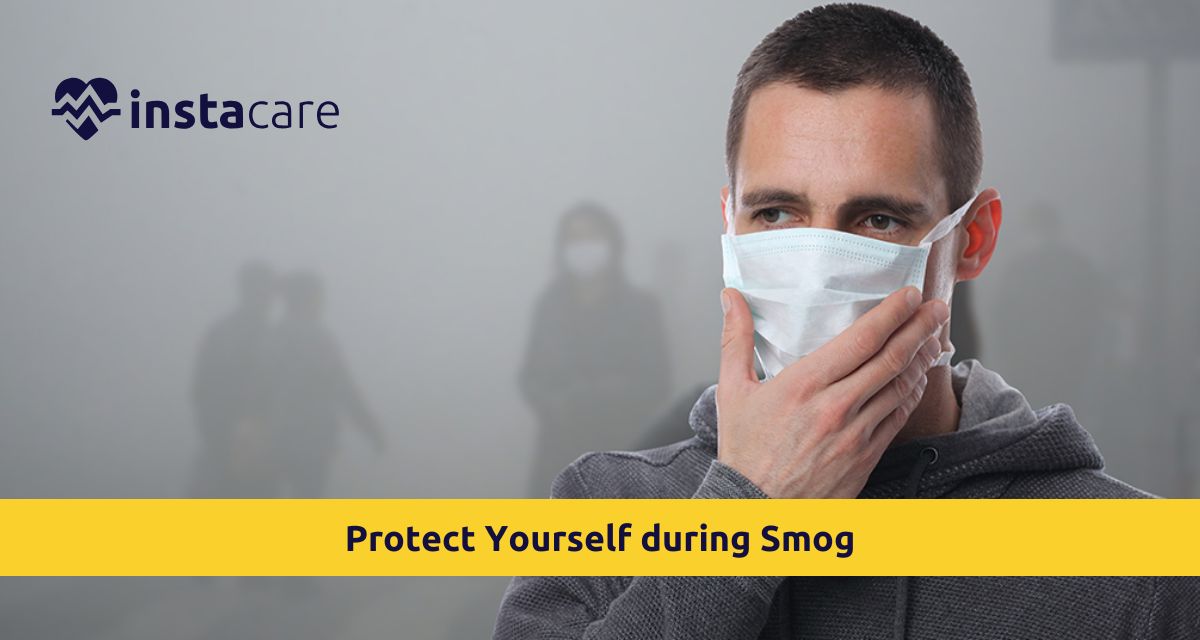This season, when the city is exposed to a serious smog
situation, the community especially needs to know what prevents they have taken
individually against the health vices of smog. Generally talking, smog is
dangerous; it results in a complete variety of sicknesses starting from
respiratory diseases to coronary cardiovascular diseases and extra fatal
illnesses. Proposed Measures to Avoid Health Hazards during the Days of Smog in
Lahore.
1. What is Smog?
First, a definition. Let's know what it is that one is attempting to defend oneself against. Smog is the common term for a complex mixture of air pollutants. The major components include:
- Particulate Matter (PM): Extremely small particles penetrate extremely deep into the lungs
- Nitrogen Oxides (NOx): Gases from combustion in vehicles and
industries
- Sulfur Dioxide (SO2): By-products of fossil fuel combustion
- Volatile Organic Compounds (VOCs): Chemicals emanating from many sources, which include paints and solvents
1.1 Health Effects of Smog
Exposure to smog also leads to a number of health disorders,
which include:
- Respiratory Disorders: Of asthma, bronchitis, reduced lung
functions among others.
- Cardiovascular Disorders: Increased strokes and heart
attacks.
- Eye Irritation: Redness and eye strain.
- Diminished Immune Response: This makes a human vulnerable to infection
2. Be Well Informed
2.1 Air Quality Index: Pay heed to AQI.
Monitor the AQI daily. There are a large number of apps and
websites that update their information about AQI periodically. If the AQI has
crossed 150, then it is unhealthy and take proper precautions accordingly.
2.2 Daily Local News and Alerts
Monitor the local news channels or social media sites which
update the people about smog conditions. Most authority also gives health
advisories during critical smog episodes.
3. Spend Less Hours Outdoors
3.1 Spend More Time In A Circulated Indoor Space
Spend very little time outdoors as much as possible on those
heavily polluted days. Try to spend most of your days indoors, and you should
do this at peak hours when the level of pollution has reached its peak. This
usually occurs during the morning and evening hours.
3.2 Indoor Workout
If you're an outdoor person and usually exercise outdoors,
then try switching to indoor exercises on smoggy days. You might try yoga, home
exercises, or even visit a gym with quality air filtration.
3.3 Avoid Exercise
If you have to go out, try to avoid strenuous labor that
would elevate your breathing rate, whereby then the amount of polluted air to
be inhaled would be increased.
4. Clean Indoor Environment
4.1 Air Purification Devices
Install a highly efficient air purifier that contains a HEPA
filter. These capture particulate matter, pollutant gases and other pollutants from
the atmosphere, and should be installed in the living rooms and bedrooms.
4.2 Keep Your Windows and Doors Shut
Seal all the exposed openings around the windows and doors
to most of it with weather stripping or caulking. Leave no place open for air
circulation because most viruses cannot live inside it for long. Ventilating
If the outdoors air is healthy, exchange it with indoor air
by ventilating your home. You can open windows and doors to let fresh air
circulate but at low levels of pollution.
4.4 Houseplants
Except for these external measures, other indoor plants such
as spider plants, peace lilies, and snake plants may also help improve air
quality. It will not be able to remove smog, though. It can help make an indoor
environment healthier.
5. Self-Protection Measures
5.1 Masks
If you have to venture outdoors, use N95 or any similar
masks that have been designed to filter particulate matter. To achieve this,
you ought to make sure your mask fits correctly and therefore gives you
adequate protection.
5.2 Eye Protective Measures
Goggles or glasses should also protect the eyes from
irritation by smog. This should be particularly the case for people with
sensitive eyes or pre-existing conditions.
5.3 Hydration
Keeping your body hydrated would help it counter the impacts
of pollution. Intake of water helps to break out toxins and would therefore
help one alleviate some effects as a result of smog exposure.
6. Health Precautions
6.1 Consult a Doctor
If you have any pre-existing medical condition like asthma,
COPD, or heart, you may need to consult your health professional for that day,
because they may advise certain medications or changes in treatment.
6.2 Use Prescribed Drugs
Of course, carry with you all medications prescribed for
you, including inhalers or any kind of respiratory respirator. Take them as
indicated, especially on smoggy days.
6.3 Control Your Symptoms
Be conscious of the manifestation and symptoms of
respiratory or cardiac distress. If you have foul breath, chest pain, or tight coughing, make sure to visit a doctor right away.
7. Community Action
7.1 Speak Out for Fresher Air
Involvement in local organization or cause that is working
towards raising the consciousness of society in matters of air quality, and
working towards cleaner air. For example, advocate for stricter emission
standards as well as sustainable urban planning.
7.2 Education
Educate family, friends and neighbors on smog and their
health impacts. Motivate them to take protection measures and improve upon
their awareness about air quality.
8. Support Local and National Efforts
8.1 Interaction with the Authorities
Continue to be interactive with local government activities
working towards decreasing air pollution. Support measures aimed at decreasing
emissions both from the industries as well as the vehicles.
8.2 Clean-Up Drives
Join the efforts of clean-up drives in the community that
would remove pollutants and increase the generation of greenery, therefore
adding to reducing the overall quantity of the created air pollution.
8.3 Promote Sustainable Practices
Encourage sustainable practices through a reduction in
dependence on fossil fuel, public transport, and local farmers who practice
ecological farming.
9. Long-term Solution
9.1 Provision of Renewable Energy
Ensure provision for renewable energy sources, such as
sunlight and wind power; this should decrease the ratio of dependence on
fossil-based resources, thus reducing air pollution.
9.2 Urban Green Spaces
Advocate the development of open spaces in the cities as
they can help purify the air by absorbing dangerous gasses and other wastes.
9.3 Green Transport
Promote public transport, carpooling, and pedestrian and
cycling activities to de-congest the roads.
Conclusion
Protecting Yourself During Smog Episodes in Lahore Your
protection is a mix of awareness, personal protective measures, and community
involvement. Awareness of the source and health impact of smog, knowing the air
quality, and implementing proper strategies all reduce the adverse impacts of
pollution on health. Community efforts for clean air won't just be for you but
make for a healthier city for all.
Please book an appointment with the Best Pulmonologist in Lahore, Karachi, Islamabad, and all major cities of Pakistan through InstaCare, or call our helpline at 03171777509 to find a verified doctor for your disease.




